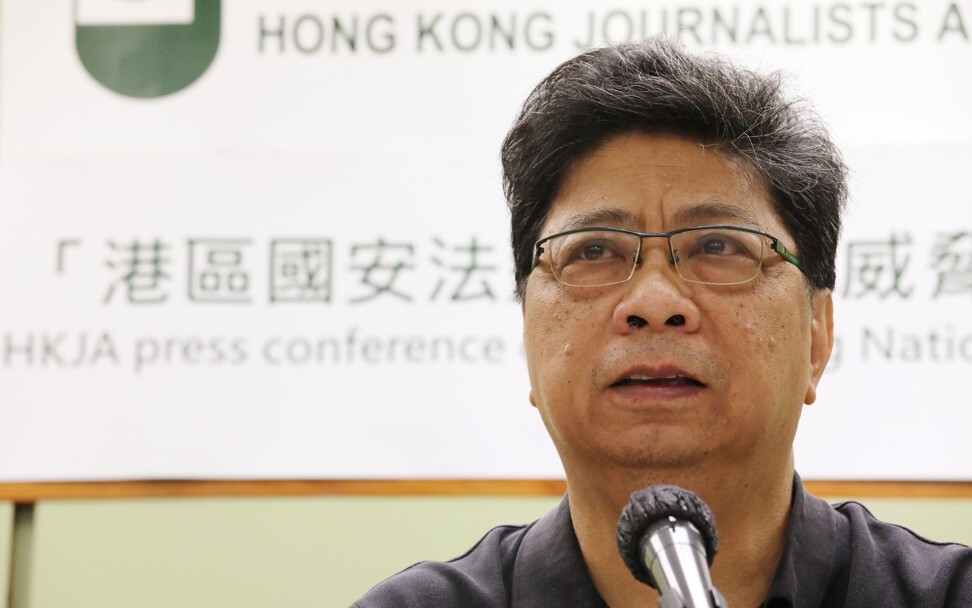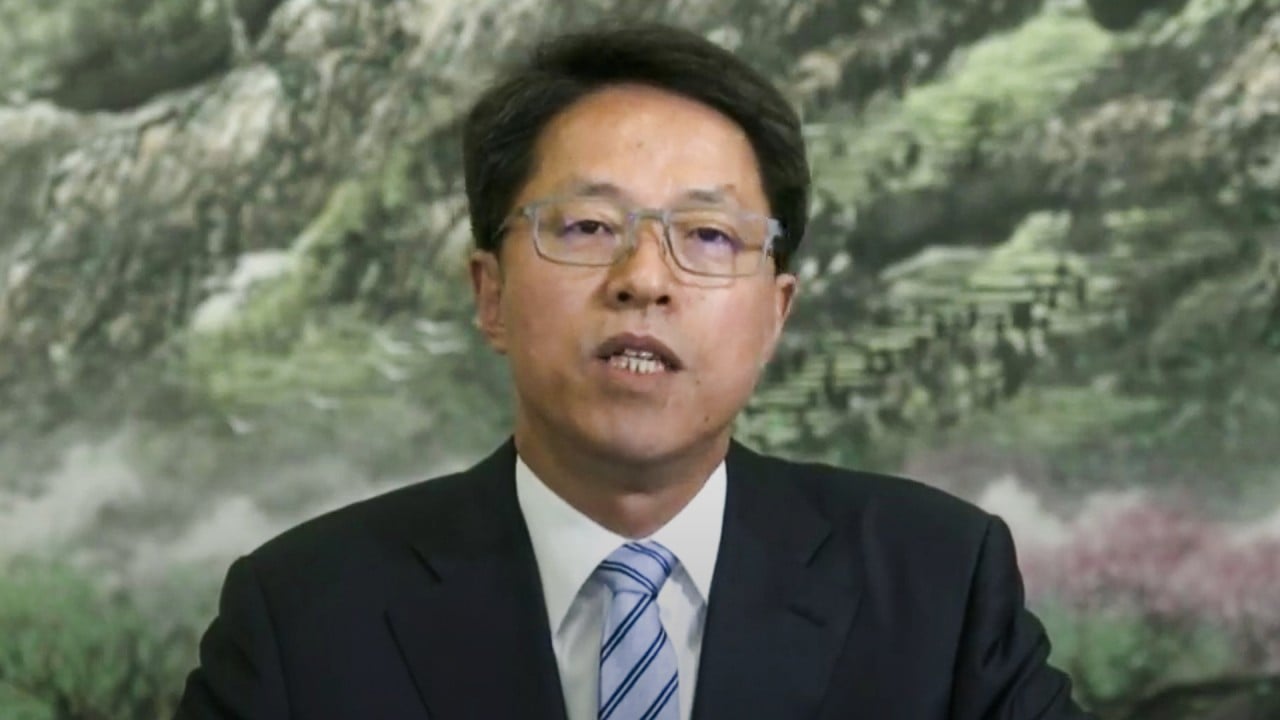
National security law: Hong Kong Journalists Association survey reveals 98 per cent oppose legislation amid fears over personal safety, self-censorship
- Overwhelming opposition to the legislation Beijing is tailor-making for Hong Kong among those who responded to HKJA survey
- Journalists fear their work will fall under the scope of the law, and that the media will exercise self-censorship

Almost all Hong Kong Journalists Association (HKJA) members who responded to a survey oppose the national security law Beijing is preparing for the city, in a poll which recorded their fears over personal safety and self-censorship in the industry.
Some 98 per cent of the 150 respondents said they were against the legislation, with an overwhelming majority also registering concerns over its potential impact on press freedom and their own welfare.
The new law aims to prevent, stop and punish secession, subversion of state power, terrorism and foreign interference in Hong Kong.
Critics warn the law could be used to suppress dissent and erode freedoms, while Beijing has repeatedly said it would only target a minority of lawbreakers.
The association sent out surveys to all 535 of its members last week, giving them three days to respond.
Of those that replied, nearly 90 per cent believed the new law would “seriously affect” press freedom in Hong Kong, and 92 per cent said they were worried it would threaten their personal safety.
The law is being drafted by China’s top legislative body, the National People’s Congress Standing Committee, which meets in Beijing this week with the proposals up for discussion. The law is likely to be passed this month at the earliest.
Chris Yeung, the association’s chairman, warned that journalists were at risk of falling within the scope of the legislation, given the uncertainty over whether their work would be seen as subverting state power.
“Reporters or editors could be liable to those crimes, so those threats to us are not just psychological but substantive in the sense that they might face those charges,” he said.

Yeung also said the new law could lead the media into avoiding sensitive topics.
“We are worried that the doubts will intensify, because [media workers] do not know if we are stepping on landmines,” Yeung said.
He said some media workers were recently told to tone down their coverage of the support for Britain granting citizenship to Hongkongers with British National (Overseas) passports.
Yeung declined to comment on the response rate, but noted the results were clear-cut and in line with public concerns.
Only seven respondents told the association that their company had put pressure on them over news articles relating to the national security law, but 122 feared that self-censorship would become a more serious issue once the law was implemented.
Despite the pessimistic outlook, only 13 per cent of those surveyed said they would leave the industry when the new law took effect.

03:18
Hong Kong’s national security law is like ‘anti-virus software’, top Beijing official says
In a letter to the standing committee, the association outlined its opposition to Beijing directly implementing the national security law in Hong Kong.
It said Beijing should let Hong Kong’s legislature make the relevant laws in accordance with Article 23 of the Basic Law, the city’s mini-constitution.
Should Beijing go ahead with the plan, Yeung said authorities needed to make sure the law was consistent with the International Covenant on Civil and Political Rights, so that the freedoms of expression, press and publication were protected.
Earlier, the Hong Kong News Executives’ Association also urged Beijing not to use the new law against journalists reporting on dissenting figures, such as those advocating the city’s independence.
It also said journalists should not be accused of leaking state secrets for documents obtained legally.